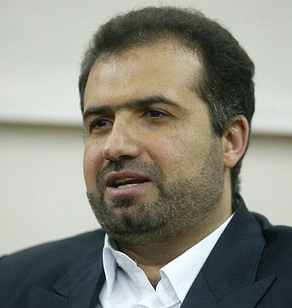Mutual inclination is necessary in reviving relations between Iran and Egypt
An interview with Kazem Jalali, the spokesman of foreign policy and national security commission in Iranian parliament

How do you analyze the recent tensions on Iran-Egypt relations?
Egypt is an important country; historically and culturally. It is influential in the Arab world and in the region. Iran is also an important and influential country in the same manners. But in the last three decades, factors like Camp David treaty and the close relations of some Egyptian officials to Israel have hurt the relations between the two countries.
When Iran and Egypt get close, they make influential effects in the region. Remember the establishment of the Islamic Conference Organization in 1969; which was a result of Iran and Egypt cooperation.
It seems that the two nations also have common cultural attitudes. What I witnessed in Egypt was that the Egyptians respect the Iranian civilization, culture and nation. They advocate close relations of the two nations.
The Islamic Republic of Iran is pursuing policies on having relations with other countries based on logics, expediency and dignity of the country; and the issue of relations with Egypt is no exception.
Unfortunately, there have been pretexts and hostile justifications on the relations of the two countries. It is only the two states’ willingness which can eliminate them. So the Iranian government and parliament are pursuing the course on Iran-Egypt relations and we hope to normalize the relations.
How did the parliamentarian diplomacy work in this regard?
The Iranian and Egyptian parliaments have always been in contact; especially in the framework of the Islamic inter-parliamentarian assembly. Right now, Egypt is the head of the assembly and its establishment is in Iran. So the parliaments of the two countries have good cooperation.
Recently, Mr. Larijani had a trip to Genève to attend the world’s inter-parliamentarian assembly. On that time, Larijani met his Egyptian counterpart. Last year, Mr.Haddad Adel also had the same meeting. So there are relations and interactions between the two parliaments. The Iranian delegation has attended assemblies in Egypt; and the Iranian parliament spokesman has also met the Egyptian president, Hosni Mubarak in Cairo.
Despite these interactions, Iran and Egypt should go to some lengths to normalize relations. There should be a mutual inclination to achieve this.
Do you see think this inclination exists?
It seems that the two nations are eager to achieve this. On the administrative level, there are some obstacles and hostilities which should be eliminated. I should also say that one should not be overwhelmed with this prospect.
The parliament has had the upper hand in negotiation with Egyptians. Would it really help to improve relations between the two states?
The parliament and the government act with precaution and logic. So the parliament can help the government in this regard but it should not be done in a hasty manner.
Why was Iran absent in the regional security meeting in Bahrain? You were supposed to be the head of the delegation.
The Iranian delegation did not attend the meeting. There was a reason for the absence but I can not elaborate on that.

